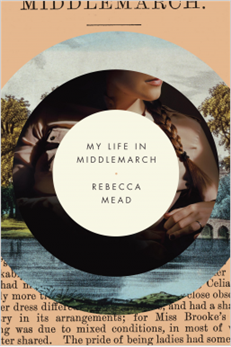 Best Book of the Week!
Best Book of the Week!
The first section of Middlemarch is concerned with Dorothea Brooke, an ardent but naive young woman who only wants to take part in something good. She thirsts for knowledge and wants to help with something important.
One trait of Dorothea’s that is physical as well as metaphorical is her shortsightedness. As her sister Celia tells her, “I thought it right to tell you because you went on as you always do, never looking just where you are and treading in the wrong place. You always see what no one else sees; it is impossible to satisfy you; yet you never see what is quite plain.”
Dorothea in her youthful ardor and intelligence attracts the attention of Mr. Casaubon, a cleric and scholar in his fifties who has been laboring for years on a work he calls “The Key to All Mythologies.” Dorothea decides it would be an honor to marry Mr. Casaubon and help him with his great work. And she does so, despite the admonitions of her friends and family.
It is while Dorothea is on her honeymoon in Rome that we meet other important characters in the novel, for Eliot subtitled her novel “A Study in Provincial Life.” There are the young Vincys, Fred and Rosamund, who have both been indulged by their wealthy parents. Fred has been raised to expect a fortune from his crusty old uncle, Peter Featherstone. Concerned at first only with leading the life of a gentleman, he has quit his university studies and fritters away his time. He would like to marry his childhood friend Mary Garth, but she won’t have him until he sticks to something.
Mr. Lydgate is a new doctor in town. He hopes to reform medical practices and make some significant discovery in medicine. Although he feels he cannot afford to marry for some years, he has not reckoned with Rosamund Vincy, a beautiful but self-centered young woman.
He also starts out by harming his chances through some outspoken comments and a too close relationship with Mr. Bulstrode. A wealthy businessman, Bulstrode is involved with the local hospital. But he likes to be in control of all his charities and is inflexible in his religious views.
In Rome, Dorothea and Mr. Casaubon re-encounter Will Ladislaw, Mr. Casaubon’s second cousin. Mr. Casaubon has been supporting Will financially through his studies after Will’s grandmother was disinherited from her family because of her choice in husband. Dorothea, in trying to befriend Will, does not see how much Mr. Casaubon dislikes him. That dislike is to have repercussions for Dorothea’s future life.
Eliot masterfully acquaints us with the problems and politics of this provincial area. Her characters are unforgettable, rich and human. There is a strong feminist sensibility, as Dorothea finds that everything she tries to do is balked because she’s a woman. And class is also an important theme. I continue to feel that Middlemarch is one of the best books ever written and was happy to have it chosen for me by the Classics Club spin.


